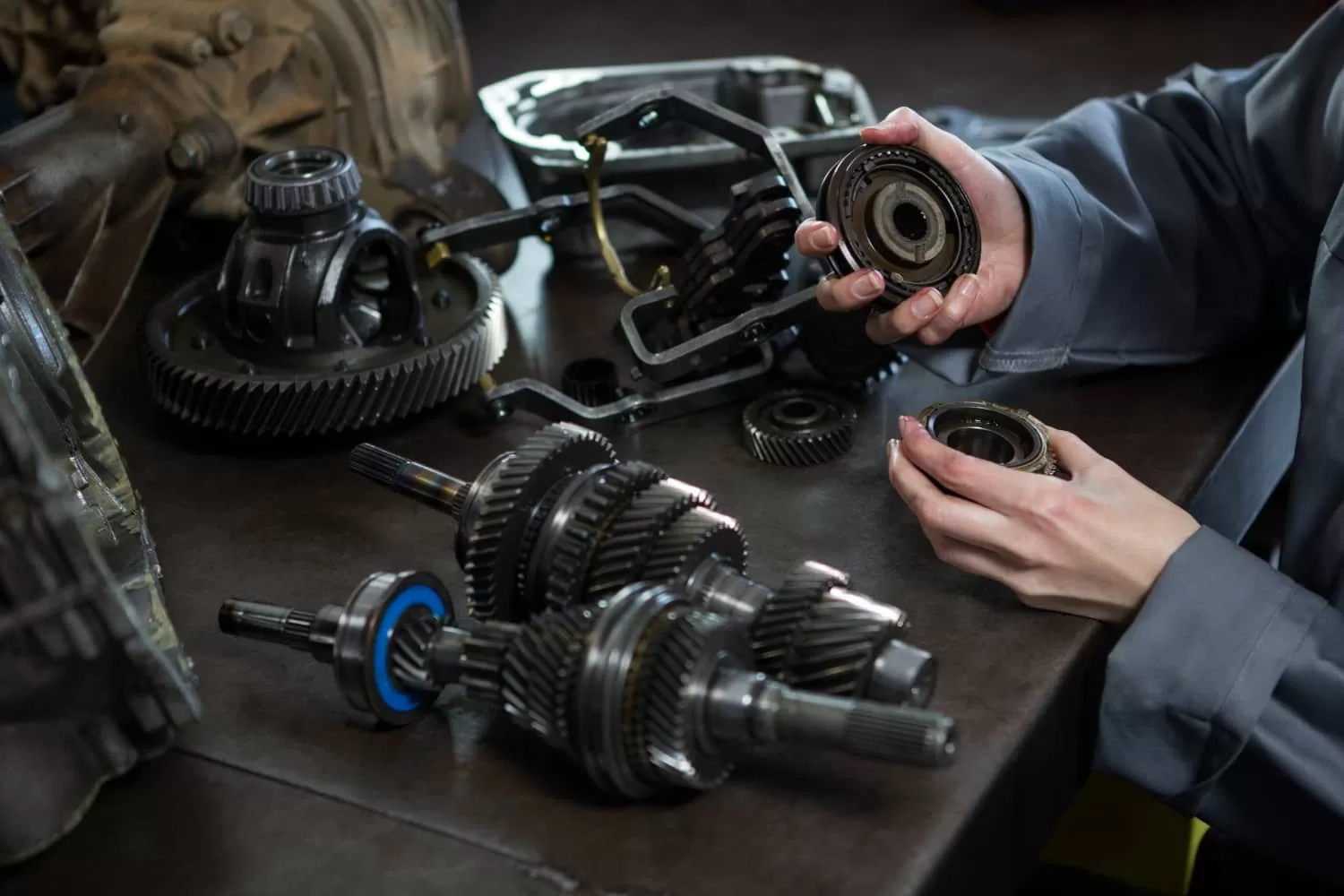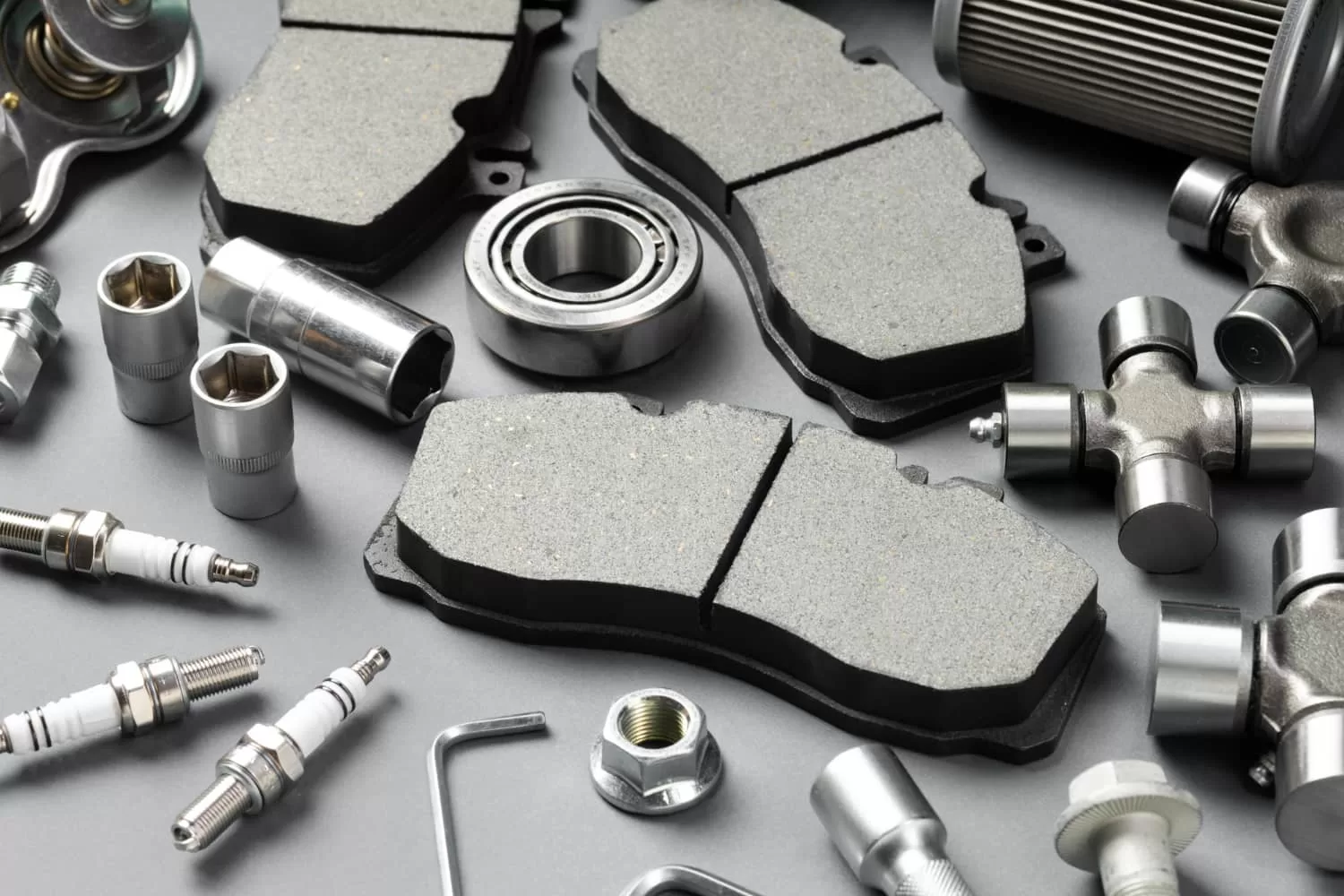Still manufacturing in the same place, the same way, and expecting different results? The world’s moved on, so should your strategy. Indonesia is stepping up as a global production hub, built for today’s challenges and tomorrow’s scale. It has everything you need to make manufacturing car parts that meet future requirements. Explore why Indonesia is becoming the new center of automotive production in Asia.
Understanding the Global Automotive Parts Market

The automotive industry has led the global manufacturing car parts market, driven by innovation, electrification, and rising vehicle ownership. According to Market Data Forecast, the market was valued at around $545 billion in 2024, and is projected to grow to $577 billion in 2025. It is also expected to reach $910 billion by 2033 at a compound annual growth rate (CAGR) of 5.85% during 2025-2033.
Leading the way as the dominant growth engine, the Asia-Pacific region including Southeast Asia, is expected to record the highest CAGR of around 5.6% through the forecast period due to rapid industrialization, urbanization, and rising vehicle ownership. Moreover, government initiatives along with investment in automotive manufacturing and technology development has become the factors of this high rapid domination.
Several key factors are driving demand for manufacturing car parts globally, including:
- Vehicles’ electrification, especially in China, is gaining momentum, with the World Bank reporting that over 40% of new cars sold in 2024 were battery-powered or hybrid.
- Increasing technological innovation and safety regulations of advanced driver-assistance systems (ADAS) to improve safety and reduce emissions.
- Growing vehicle fleet and aftermarket expansion, surpassing 1.57 billion cars in 2023.
- Urbanization and rising disposable income, paired with the government actively supporting automotive industry growth through incentives and infrastructure development.
Why Indonesia Is a Strategic Location for Manufacturing Car Parts

Positioned as a new, appealing global hotspot for manufacturing car parts, Indonesia has a future-proof source for automotive innovation. Here’s why global automotive leaders are increasingly choosing Indonesia to scale operations:
1. Strategic Location and Benefits from Trade Access
Located at the crossroads of major global shipping routes connecting the Pacific and Indian Ocean, Indonesia efficiently facilitates access to key Asian markets such as China, Japan, South Korea, and the broader ASEAN region. As a member of the ASEAN Free Trade Area (AFTA) and the regional Comprehensive Economic Partnership (RCEP), Indonesia benefits from:
- Reduced tariffs for automotive components.
- Simplified trade procedures.
- Lower export barriers to a combined market of over 2 billion people.
2. Abundant Raw Materials and Integrated Supply Chains
Rich in critical raw materials, Indonesia holds one of the world’s largest reserves of nickel, cobalt, and other essential EV battery materials. This abundance supports:
- Onshore production of key auto parts.
- Vertical integration that reduces dependency on imports, strengthening local production capabilities.
- A growing network of domestic suppliers and OEMs that improves supply stability.
3. Skilled, Cost-Competitive, and Growing Talent Pool
Global automotive industries like Toyota, Mitsubishi, Hyundai, and Honda had already leveraged the skilled talent advantage by operating large-scale production hubs in Indonesia. With a labor force of over 38 million workers involved in the automotive sector, Indonesia offers:
- Access to a diverse and expanding talent pool capable of adapting manufacturing technologies.
- Competitive labor costs compared to Thailand or Vietnam.
4. Pro-Manufacturing Government Policies and Incentives
Indonesia’s government has legitimized a series of policies and incentives to support automotive investment and manufacturing growth through:
- The Electric Vehicle Roadmap and Low Carbon Emission Vehicle (LCEV) program promote the transition toward greener vehicles by offering tax holidays, VAT subsidies, and purchasing incentives for EVs and hybrids.
- Simplified business regulations and investment facilitation encourage foreign direct investment (FDI) in automotive manufacturing and component production.
- Over 143 trillion Rupiah, around $9.5 billion, in cumulative investments by 2023, showing strong government and private sector commitment to expanding production capacity and adopting advanced technologies
Read More: 10 Business Industry Types Thriving in Indonesia (2025) Investors Should Know
Key Advantages of Setting Up Car Parts Manufacturing in Indonesia
One of Indonesia’s compelling advantages in manufacturing car parts is its cost efficiency. Labor and production expenses are significantly lower than those in neighboring countries. But there is a lot more than just cost-benefit.
Invested in modern infrastructure to support industrial growth, Indonesia is home to several Special Economic Zones (SEZs) and integrated industrial estates. One of which is Subang Smartpolitan, a next-generation smart city built for advanced manufacturing. Global brands like BYD, the Chinese EV leader, are in the process of setting up production facilities here. This infrastructure advantage helps manufacturers reduce lead times, improve supply chain visibility, and respond faster to global and regional market shifts.
Moreover, Indonesia is also a hub for Original Equipment Manufacturers (OEMs). Major global automakers such as Toyota, Mitsubishi, Hyundai, and Honda have built their production bases across the country.
What Investors Should Know Before Starting Car Parts Manufacturing in Indonesia

Success in setting up operations for manufacturing car parts in Indonesia depends on understanding the regulations. Investors must pay attention to:
1. Regulatory Requirements and Business Permits
Indonesia regulates the automotive sector under comprehensive legislation, including Presidential Regulation No. 55/2019, particularly relevant to electric vehicle (EV) manufacturing. Investors must secure permits in line with industrial, labor, and environmental laws, and should anticipate a structured but evolving process that emphasizes sustainability and local integration.
2. Environmental Standards and Sustainability Expectations
Indonesia enforces strict sustainability obligatory through Environmental Law No. 32/2009, supporting the Low Carbon Emission Vehicle (LCEV) roadmap. Manufacturers must comply and have strategies to reduce emissions, manage waste, and use resources efficiently.
3. Local Content Requirements (TKDN) and Incentives
One of Indonesia’s most critical regulations is the local content requirement, or TKDN. The government targets a minimum of 80% local content in automotive production by 2030, up from current thresholds. Meeting TKDN targets unlocks substantial incentives, such as:
- Up to 20 years of tax holidays.
- VAT subsidies, for example, 10% for EVs with at least 40% TKDN.
- Import duty exemptions for CKD and IKD components.
Investors in manufacturing car parts must design their supply chains accordingly, balancing cost-efficiency, quality, and regulatory alignment.
Unlock the Future of Car Parts Manufacturing at Subang Smartpolitan

True industry leaders think long term. If you’re building a legacy in manufacturing car parts, it needs to be built in a location that can grow with you.
Subang Smartpolitan gives you competitive advantages with:
- Fully integrated smart and sustainable ecosystem.
- Plug-and-play facilities for one-stop investment assistance.
- Located at the crossroads of toll roads, Patimban Port, and Kertajati Airport, where everything from business hubs to residential spaces is already in motion.
Why settle for less when the future is built here? Visit the site or reach us on WhatsApp and discover how easy it is to plug into smarter manufacturing.
Read More: Best Business Opportunities in Indonesia for 2025 (and Why It’s the Right Market)
FAQ
- Is Indonesia a good location for car parts manufacturing?
Yes. Indonesia offers a strategic location, competitive costs, a skilled workforce, and robust infrastructure, making it an ideal destination for car parts manufacturing. - What are the benefits of investing in Subang Smartpolitan for automotive manufacturing?
Subang Smartpolitan provides advanced infrastructure, integrated business support, strategic access to major transport hubs, and a sustainable environment tailored for global manufacturers. - Can foreign investors fully own a manufacturing business in Indonesia?
In most cases, yes. Indonesia allows up to 100% foreign ownership for manufacturing car parts, subject to current investment regulations. - What incentives does Indonesia offer for automotive part manufacturers?
Investors may benefit from tax holidays, investment allowances, customs exemptions, and ease of business processes, especially within designated industrial zones like Subang Smartpolitan.

